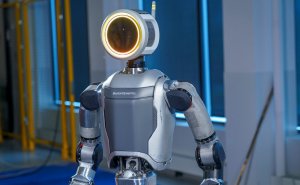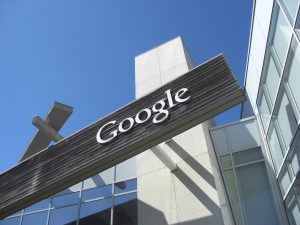Google-Oracle Geek Trial Never Should’ve Reached a Jury
![]() The Oracle-Google trial is well on its way as it enters the second week of the eight week trial. Oracle sued Google for allegedly infringing the Java patents when the latter was developing the Android platform. Sun Microsystems was the original owner of the Java script, but Oracle took it in when they acquired Sun back in 2009.
The Oracle-Google trial is well on its way as it enters the second week of the eight week trial. Oracle sued Google for allegedly infringing the Java patents when the latter was developing the Android platform. Sun Microsystems was the original owner of the Java script, but Oracle took it in when they acquired Sun back in 2009.
The case is presided by U.S. District Judge William Alsup and the jury is composed of seven women and five men ranging from a retired teacher, a U.S. postal worker, a store designer for Gap Inc., a retired photographer, an avid hiker and a nurse.
CEOs from both companies have already appeared in court during the second and third days of the trial. Oracle CEO Larry Ellison and their lawyers were determined to convince everyone that Google knew they were infringing Java patents based on the internal Google e-mails presented in court as evidence and Application Programming Interfaces are copyrightable. Google CEO Larry Page and company lawyer were adamant in their stance that they and their company did nothing wrong, and that APIs aren’t copyrightable since Java would be useless without them. Page’s testimony wasn’t that informative since he mostly retorted that he couldn’t remember or had no knowledge of what the questions brought forth by the Oracle lawyer.
The fourth day of trial turned the courtroom into a classroom as tech experts from Oracle and Google took the witness stand to give their testimony. The tech experts all stated that the Java APIs are copyrighted by Sun.
Hazards of Non-IT jury
As the trial progresses, the two opposing parties would have to educate the judge and the jury about exactly what they’re fighting for here. That’s the hazard of having non-IT experts as part of the jury. In order for the jury to come up with with a decision by the end of the trial they would have to understand where the two parties are coming from, and that includes understanding the Java franchise as maintained by Oracle, the GNU Public License, application programming interfaces (APIs), Java APIs versus the code itself, the Android operating system’s development, mobile device application development, the open source community, freely downloadable software and other mind-numbing, technical aspects of the case.
Also, some tech experts are concerned over the fact that the jury is not knowledgeable in these tech-heavy aspects of the case, as this could seriously affect the outcome. IT experts studied, lived, breathed, ate, and drank technology while the members of the jury need to understand the technical aspects of the case in a matter of eight-weeks so they can come up with their decision. Talk about information overload.
“This dispute never should have been in court in the first place,” one respected industry veteran, who will remain anonymous as per request, said in an interview with eWEEK. “Oracle and Google had plenty of opportunities to make an agreement on how to use Java. Everybody uses Java. And everybody knows that you take out an open source license to use it commercially. This is not a difficult concept. Oracle is the corporate maintainer; all Google had to do is fill out the form and make the deal.”
The anonymous source also stated that Google may be counting on the jury to count APIs as part of the open source aspect of the Java package to rule out APIs as copyrightable. And this may happen if the jury doesn’t understand what the opposing sides are talking about in court.
The wheels are in motion
Oracle stated that APIs are copyrightable or considered different from underlying software languages, which Google vehemently argues they are not. If Oracle succeeds and it turns out APIs are indeed copyrightable, then this could totally change the future of software development. This would make if difficult for new developers to enter the scene since there’s always a possibility that you’d be using somebody’s API in developing a software, and could become cost-prohibitive to acquire a license. But if Google wins this court case, then APIs would become as open as the Android platform.
In the end, no matter how you look at the case, the focus is all about the money. Oracle wants Google to pay for using Java codes and they want Google to sign a licensing agreement. But if this happens, there’s the question of whether or not Google will be able to still offer the Android platform for free, potentially shaking the Android ecosystem as OEMs may look for other free platforms to use on their devices. This could open the market to more Windows Phone based devices or even BlackBerry-based devices, since Research in Motion is said to be looking into open sourcing their OS.
A message from John Furrier, co-founder of SiliconANGLE:
Your vote of support is important to us and it helps us keep the content FREE.
One click below supports our mission to provide free, deep, and relevant content.
Join our community on YouTube
Join the community that includes more than 15,000 #CubeAlumni experts, including Amazon.com CEO Andy Jassy, Dell Technologies founder and CEO Michael Dell, Intel CEO Pat Gelsinger, and many more luminaries and experts.
THANK YOU













